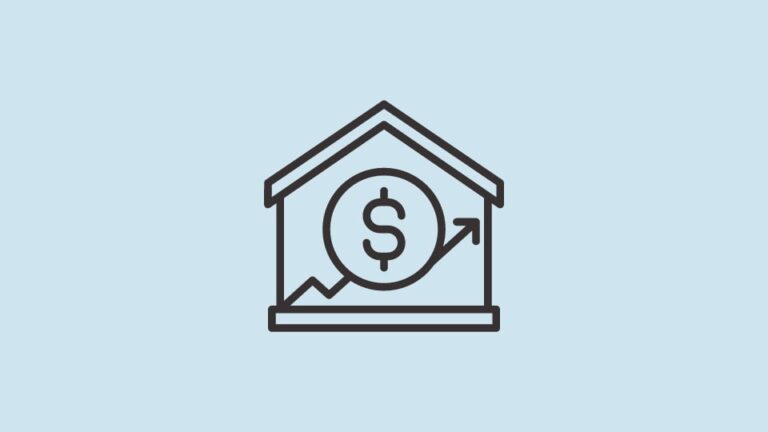How to Find Undervalued Real Estate?
Real estate is considered undervalued when priced below its actual market value. A variety of factors, including poor property conditions, economic downturns, or market trends, can cause this. Undervalued properties can provide excellent investment opportunities for buyers, as they can purchase properties at a discount and potentially profit later. As a result, it is critical to understand how to identify undervalued real estate and identify investment opportunities.
In this article, we will look at various methods for identifying undervalued properties and offer advice on buying undervalued real estate while minimizing risks.
Identifying Undervalued Real Estate

Undervalued real estate can be a great investment opportunity if you know where to look. Here are some pointers on how to spot undervalued real estate:
a) Factors influencing property value
- Location: Property values tend to be higher in desirable areas. Consider aspects such as closeness to amenities, community quality, and transportation accessibility.
- Market Condition: Knowing the local real estate market is essential for locating undervalued houses. Investigate recent sales, property valuations, and market trends in the neighborhood.
b) Property valuation techniques
- Data Analysis: Analyze data to locate undervalued properties. Search for homes that have been on the market for a long time and are priced below market value or have low asking prices compared to other houses in the region.
- Relationship building: Establish a positive working relationship with a licensed real estate agent. They can provide you with access to off-market inventories and assist you in locating inexpensive properties.
c) Recognizing undervalued properties
- Look for motivated sellers: Motivated sellers’ properties may be discounted. Some sellers may face financial troubles, divorce, or other personal issues needing a speedy sale.
- Seek for ugly houses: Homes that don’t appear appealing on the surface but are in a proper location may be discounted. Search for properties that require cosmetic upgrades rather than serious repairs.
- Attend auctions: At auctions, you may uncover undervalued properties. But remember that competition is tough, and you may pay more than expected.
Considering these characteristics, you can boost your chances of discovering discounted real estate options. Remember to do your homework and thoroughly investigate each property before making an offer.
What Causes a Property to Be Undervalued?
A property may be undervalued for a variety of reasons. Economic factors, property problems, location and zoning issues, and market movements are all possible reasons.
a) Economic considerations: Economic variables such as changes in the real estate market might cause a drop in the value of a property. A downturn or recession in the economy may also result in fewer buyers and, thus, lesser demand for houses, resulting in lower prices.
b) The state of the property: A property’s condition can also impact its value. If a home is not up to standard, it may necessitate extensive repairs or renovations, making it less appealing to potential buyers. A mortgage valuation survey can also detect maintenance issues such as dampness and subsidence, resulting in a reduced appraisal.
c) Issues of location and zoning: The value of a property can also be influenced by its location and zoning. Natural catastrophes, climate change, and other environmental conditions can increase a property’s vulnerability to destruction, decreasing its value. Zoning modifications that restrict or limit a property’s possible use can also reduce its value.
d) Market developments: Market trends also contribute to a property’s undervaluation. Downsizing is a popular rationale for selling a property for less than its market worth. This can happen when the owners no longer require the room and desire to simplify their lives by downsizing to a smaller property. This trend may result in more supply than demand, reducing home prices.
Knowing why a property could be undervalued can assist purchasers in identifying future possibilities and negotiating better prices. Nonetheless, careful due diligence is required to eliminate any hidden concerns that may reduce the property’s value in the long term.
How to Find Undervalued Real Estate?

Undervalued real estate can be a gold mine for investors trying to buy homes cheaply. Finding these traits, however, can be difficult. This post will go over the many methods for locating undervalued real estate.
1) Identifying motivated sellers
Finding motivated sellers is one of the finest methods to find discounted real estate. Motivated sellers need to sell their homes as soon as possible and are willing to accept a lesser price. You can accomplish this by learning more about the sale’s circumstances – why it’s being sold and the sellers’ circumstances. A seller, for example, may be going through a divorce, facing foreclosure, or relocating to a different region.
2) Recognizing troubled or undesirable properties
If you can discover a house that objectively “doesn’t look nice” but is in a good neighborhood, you might be able to snag it for a low price. Buyers looking for move-in ready houses frequently miss these properties. However, these properties can be converted into profitable assets with sufficient work and investment.
3) Participating in auctions and foreclosure sales
You can uncover undervalued properties at auctions. These properties are typically sold for less than market value, and you may often get them at a significant discount. But, before attending these events, do your research and be prepared to respond quickly.
4) Networking and connection-building with industry professionals
Working on your relationship with a qualified real estate agent is the best approach to finding off-market discounts. These agents frequently have access to properties outside the market and can assist you in locating discounted real estate that suits your investment objectives. Attend industry events, conferences, and meetings to expand your network and connect with these professionals.
By employing these tactics, you may boost your chances of identifying undervalued real estate and making a lucrative investment. Always conduct a thorough study and due diligence before making any investment decisions.
Suggestions and Techniques for Investing in Undervalued Real Estate
Investing in undervalued real estate might be a lucrative opportunity for investors hoping to get a good deal on a property. On the other hand, finding these undervalued houses needs a keen eye and a thorough understanding of the real estate industry. Below are the tips you can follow:
Carrying Out Due Diligence
When investing in any property, it is critical to conduct market research, especially when looking for undervalued properties. Thorough research can help you make informed selections about which properties to pursue. The property’s location, market trends, and condition are all considerations. Calculating the figures also helps you determine whether or not the property is a wise investment.
Bargaining with Sellers
Negotiating with the seller is one of the finest ways to get a decent deal on an undervalued property. Learning more about the sale’s conditions and the sellers’ motivations will help you determine how driven they are to sell. Knowing the sellers’ circumstances can also assist you in negotiating a better deal.
Getting Funding
Before making an offer on an undervalued home, you must secure finance. Because traditional lenders may be unwilling to finance an undervalued property, it is critical to investigate other financing options such as private lenders, hard money loans, or seller financing.
Creating an Effective Investing Plan
Developing a solid investment strategy is critical to success when investing in discounted real estate. An excellent place to start is by gathering data and researching the most significant areas to invest in your city or state. In addition, check for new infrastructure being built by a city as a hint of an undervalued property.
Making a plan for adding value to the home can boost its value and result in a more significant return on investment.
Due diligence, negotiation skills, money, and a substantial investment strategy are required when investing in inexpensive real estate. You can successfully invest in discounted real estate and obtain a good return on investment by following the advice and tactics discussed in this article.
The Benefits and Hazards of Investing in Undervalued Real Estate
Undervalued real estate is an excellent investment opportunity, but it is critical to understand the benefits and hazards before purchasing. Consider the following advantages and disadvantages:
a) Benefits of purchasing undervalued real estate: You may come upon a property whose owner has priced it below market value, which can be an excellent investment opportunity. When you sell the property later, you could make a profit.
To be a fix-and-flip investor, you must buy discounted real estate. You can add value to a distressed house by remodeling and selling it at a higher price.
b) The disadvantages of purchasing undervalued real estate: Hidden risks linked with an undervalued house may include structural issues or problem mortgages. This could result in costly repairs and increased costs.
You need to spend more money on the purchase to be able to refurbish the property, leaving you with considerable responsibility rather than an asset.
c) Controlling risks and limiting potential losses: When investing in real estate, it is critical to identify significant risks such as unfavorable locations, negative cash flows, large vacancies, and issue renters.
Before investing in any property, make sure to do your homework. This includes investigating the property’s history, having a professional inspection, and obtaining acceptable financing arrangements.
When investing in discounted real estate, you can make a more informed decision if you know the potential rewards and hazards.
Conclusion
Nevertheless, investing in discounted real estate can be rewarding if addressed correctly. Look for motivated sellers and troubled or undesirable properties, and attend auctions or foreclosure sales to find these properties. Due investigations, negotiating with sellers, obtaining financing, and building a solid investing strategy are all necessary steps to minimizing risks and maximizing benefits. However, discounted real estate involves dangers such as hidden risks, structural issues, and problem mortgages.
As a result, before making any investment decisions, it is critical to undertake thorough research and obtain guidance from industry professionals.






